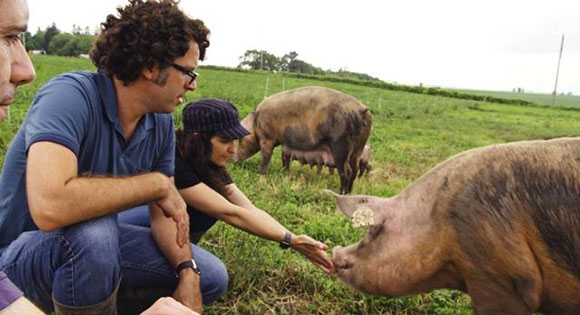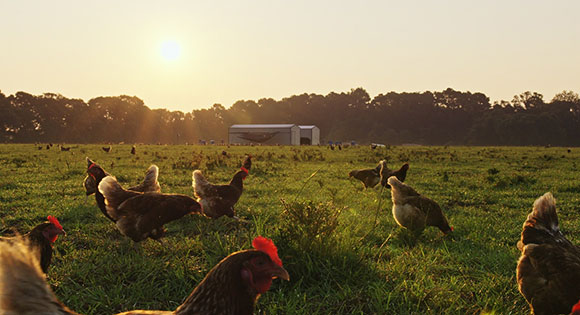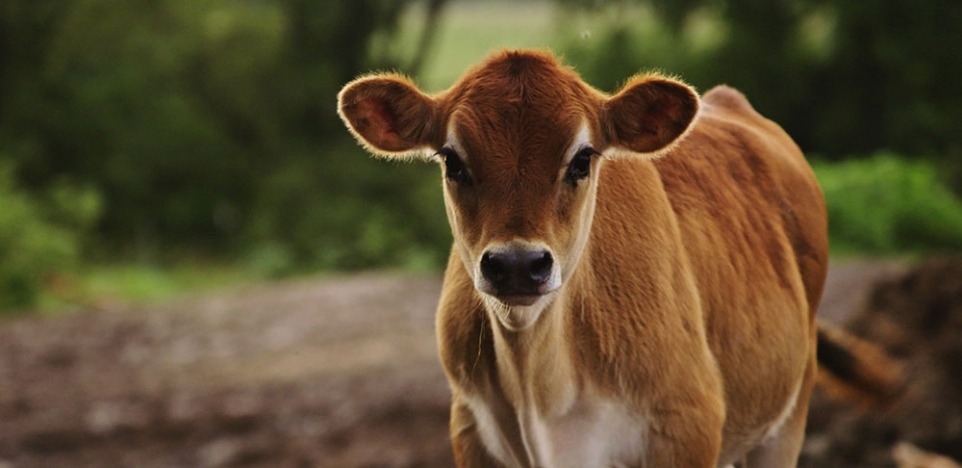From the very beginning of this engaging documentary, we are challenged to learn more about the food we eat and where it comes from. We can identify with both the filmmaker John Papola, who is an omnivore (meat-eater), and his wife Lisa, a vegetarian with very strong beliefs. Desiring to take a hard and long look of how farm animals are raised for our consumption, these two set out to visit a variety of farmers who have made ethical choices.

It is refreshing to learn that some of the owners of large-scale conventional farms are doing all they can to respect the pigs, cattle, chickens, and other animals they are harvesting. In one scene, Papola steps into a gestation crate where many pregnant sows spend their lives. Lisa perks up when some farmers refer to the animals as sensitive, thinking, feeling, and expressive beings who deserve respect from those who take care of them.
Papola, about half-way into the film, admits that he still has trouble empathizing with animals. But he is given additional insights into animal welfare rights by Dr. Temple Grandin, a world-famous professor of animal science and consultant to the livestock industry; Wayne Pacelle, president and CEO of the Humane Society of the United States; and Mark Bittman, bestselling author and food expert.

Among the surprising things these experts have to say is that consumers have the power to change procedures, practices, and traditions that bring harm and great suffering to the animals. At the Fork is part of an effort to spark a conversation about how animals are raised for food. Go to AtTheForkFilm.com to join a campaign that offers participants a step-by-step plan to improve the lives of farm animals while expanding an ethical eating lifestyle. You’ll receive 21 days of higher-welfare and plant-based recipes, a “Daily Challenge Recipe” from featured chefs, and an introduction to the three R’s: refuse, reduce, replace.
